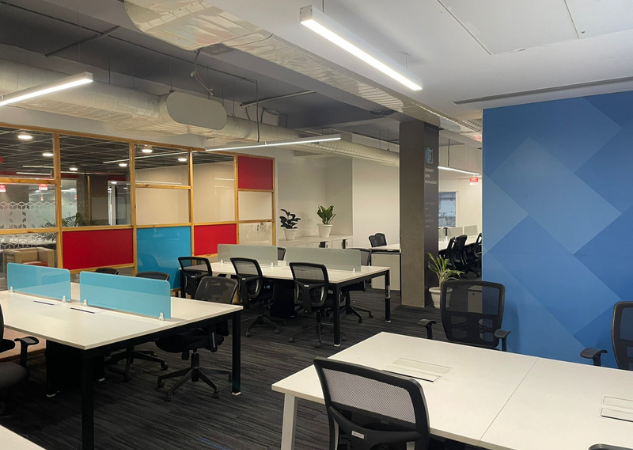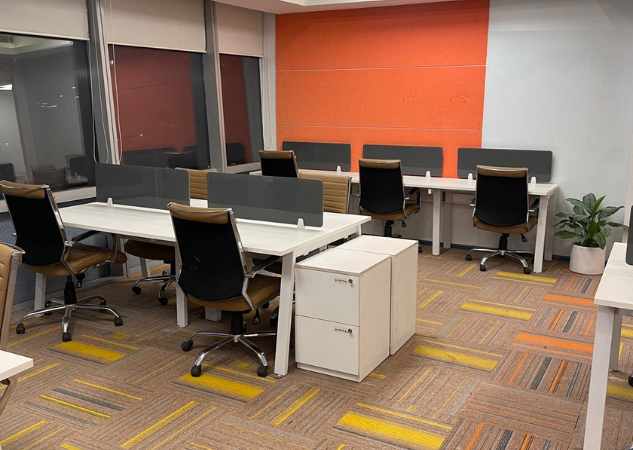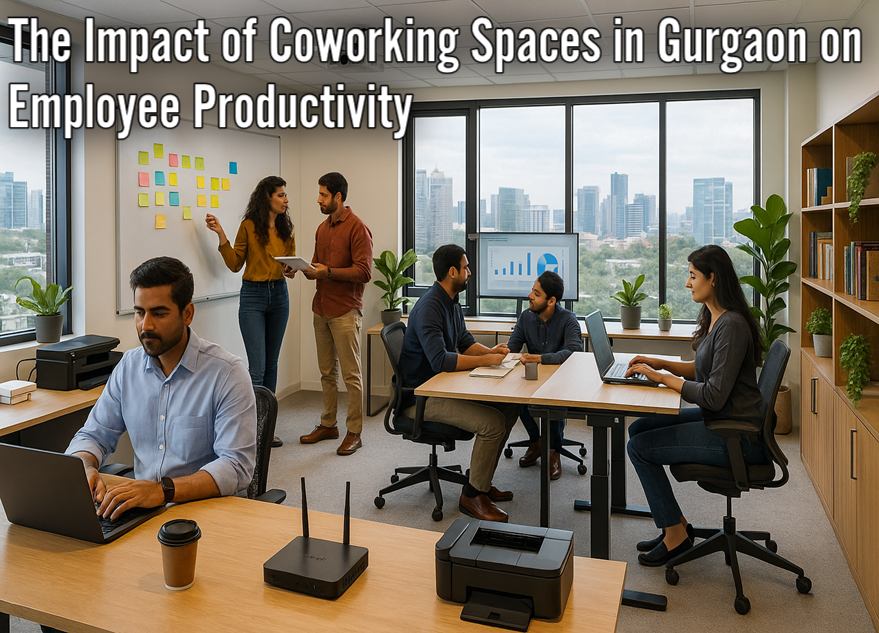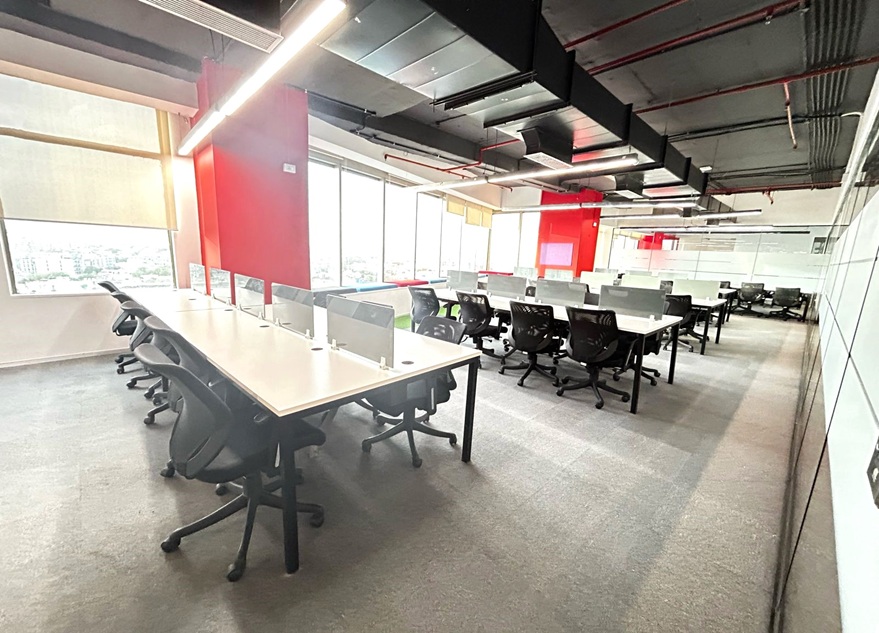Securing funding for your startup requires more than a great idea—it demands a strategic approach that combines creativity with analytical precision. By tapping into both left-brain logic and right-brain creativity, you can craft a compelling pitch that resonates with investors on multiple levels. This blend of structured planning and innovative thinking not only showcases your business acumen but also demonstrates your ability to think outside the box. Let us discover how you can effectively use both strategies to secure funding for your startup.
💡 Are you looking for Coworking space in Gurgaon, Noida or Delhi? We are just a call away.
Call Now: 08999 828282
12 Best Tips to Use of Left and Right Brain Strategies to Secure Funding For The Startup
- Craft a Compelling Narrative (Right Brain)
- Show Data-Driven Insights (Left Brain)
- Visualize Your Vision (Right Brain)
- Present a Well-Structured Business Plan (Left Brain)
- Focus on Innovative Solutions (Right Brain)
- Provide Risk Assessments and Mitigation Plans (Left Brain)
- Engage with Passion and Energy (Right Brain)
- Showcase Team Expertise (Left Brain)
- Use Analogies and Examples (Right Brain)
- Practice Analytical Pitching (Left Brain)
- Balance Emotion and Logic
- Adapt to Your Audience
1. Craft a Compelling Narrative (Right Brain)
Investors love stories. Share your journey, the problem you’re solving, and how your startup came to life. A compelling narrative connects emotionally, making your pitch memorable.

2. Show Data-Driven Insights (Left Brain)
Support your story with hard facts. Use market research, growth metrics, and financial projections to showcase the potential of your business. Numbers build trust and credibility.
3. Visualize Your Vision (Right Brain)
Incorporate visuals like infographics, videos, and illustrations in your pitch. A clear visual representation of your goals and progress can make complex ideas easier to grasp.
Also Read: How to Use Data Analytics to Improve Employee Retention?
4. Present a Well-Structured Business Plan (Left Brain)
A detailed business plan outlining revenue streams, operational costs, and timelines is critical. Investors want to see that you’ve thought through every aspect of your business.
5. Focus on Innovative Solutions (Right Brain)
Highlight the unique and creative aspects of your product or service. Show how it stands out from competitors and meets customer needs in a new way.
6. Provide Risk Assessments and Mitigation Plans (Left Brain)
Investors are always concerned about risks. A thorough analysis of potential challenges and your strategies to overcome them demonstrates practical thinking.
7. Engage with Passion and Energy (Right Brain)
Your enthusiasm is contagious. Show investors that you’re deeply committed to your startup and its mission. Passion often inspires confidence.
8. Showcase Team Expertise (Left Brain)
Emphasize the skills and experience of your team. Investors want to know that you have the right people to execute your plan.
9. Use Analogies and Examples (Right Brain)
Explain your concept using relatable analogies or real-world examples. This helps simplify complex ideas and makes your pitch more relatable.
10. Practice Analytical Pitching (Left Brain)
Rehearse your pitch with a focus on clarity and conciseness. Address potential investor concerns proactively by providing detailed answers supported by data.
💡 Are you looking for Coworking space in Gurgaon, Noida or Delhi? We are just a call away.
Call Now: 08999 828282
11. Balance Emotion and Logic
The best pitches appeal to both emotion and logic. While your story captures attention, your data-driven approach convinces investors of your startup’s feasibility.
12. Adapt to Your Audience
Not all investors think alike. Some may prioritize data, while others value innovation. Use your left and right brain strategies flexibly based on who you’re pitching to.
Securing funding for your startup is an art and a science, requiring a balance of left-brain analytics and right-brain creativity. By blending logical planning with innovative storytelling, you can craft pitches that captivate investors and inspire confidence in your vision. Remember, success also stems from the environment you work in. The Office Pass (TOP) offers collaborative workspaces designed to spark creativity and productivity, giving you the perfect setting to refine your strategies and impress potential investors. Reach out at 08999 828282 to book your space today!
FREQUENTLY ASKED QUESTIONS (FAQS):
Question: What does “left brain” and “right brain” mean in business?
Answer: The “left brain” refers to logical, analytical, and structured thinking, while the “right brain” focuses on creativity, emotions, and big-picture ideas. Combining both helps you present your startup in a balanced and compelling way to potential investors.
Question: How can left-brain strategies help secure funding?
Answer: Left-brain strategies involve creating detailed financial plans, market analysis, and data-backed projections. These show investors that your business is structured, sustainable, and worth their investment.
Question: Why are right-brain strategies important for pitching?
Answer: Right-brain strategies add creativity and emotional appeal to your pitch. By telling a story or painting a vision, you can inspire investors and make them feel personally connected to your startup’s mission.
Question: Can you give an example of using both strategies in a pitch?
Answer: Start with a compelling story (right brain) about why you started your business, then back it up with clear data and projections (left brain) to show how your idea will succeed financially.
Question: How do I balance creativity and logic in my investor pitch?
Answer: Use creativity to grab attention and build an emotional connection, but anchor your ideas with facts, numbers, and a clear roadmap. This balance appeals to both emotional and analytical investors.
Question: Do investors prefer data or storytelling?
Answer: Investors value both. Data gives them confidence in the numbers, while storytelling shows passion and vision. Combining the two helps you appeal to a wider range of investors.
Question: How can I improve my left-brain skills for funding pitches?
Answer: Focus on building financial models, understanding your market, and presenting data clearly. Practice analyzing numbers and preparing detailed, logical plans for your business.
Question: What right-brain techniques can I use during my pitch?
Answer: Use visuals, metaphors, and engaging stories. Show your passion and enthusiasm for your startup. Make your vision relatable and exciting to leave a lasting impression.
Question: Should I use different strategies for different types of investors?
Answer: Yes, adapt your approach. Logical investors may prefer data-heavy presentations, while creative investors might respond better to emotional storytelling. Assess their preferences and adjust accordingly.
Question: How do I practice combining left and right brain strategies?
Answer: Work on presenting data with a narrative. For example, explain how a problem affects people emotionally (right brain) and then show how your solution solves it effectively (left brain). Practice this balance with mock pitches or mentors.








